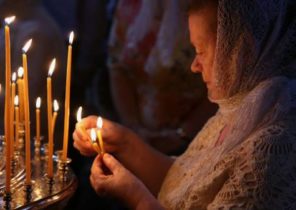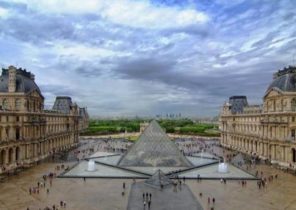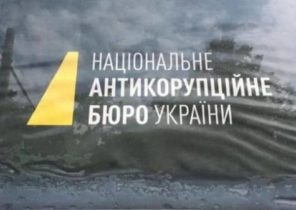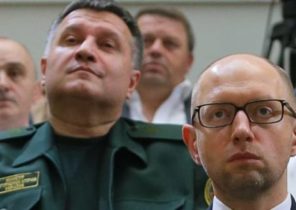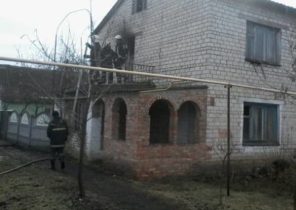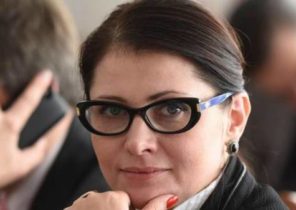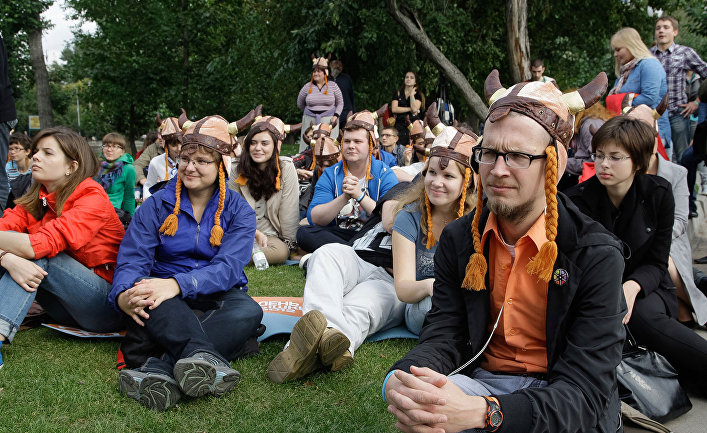
Russia had the youngest Minister — 34-year-old Maxim Oreshkin. He was educated in one of the most prestigious universities in Russia — post-Soviet liberal, market-oriented “nursery” for the future elite. Today it is studying more and more young people from the former republics of the Soviet Union. They are attracted by free training and the usual language is Russian. Our correspondent met with some students of the famous Moscow higher school of Economics.
Students of the Moscow higher school of Economics live in a skyscraper with a surrounded territory. To get inside, you need a pass — at the entrance visitors are checked by the guards, who in the presence of the desired document to open the turnstiles for those who want to enter.
But still this University is unusually open to Moscow. For many other requires lengthy paperwork, which in the end may not give you the opportunity to talk with students at the University or walk through their corridors.
“I really wanted to get here, that was my goal since ninth grade. Here is more prestigious than any University I have a home in Chisinau in Moldova,” says 19-year-old Dmitry Ohrimenko, who is studying Economics and management and a half years.
“Attracted by the hope to enter a famous University, and even it’s Moscow, there is much more possibilities than in poor Moldova” — continues Dmitry.
“Education itself is free, I only pay for housing, it is something like a two-bedroom apartment, which we divide into nine, each room live three people. It’s worth a thousand rubles a month”, — says Dmitry.
He calculated that he needed to have 15 thousand rubles a month for rent, food and transport. This corresponds to the sum of just over 2 million Swedish kronor, for the student. So although the training is free, most students either have to borrow money from parents or to earn money.
As it is, for example, makes Sergey, the third-year student, who works along with his brothers, already living in Russia.
“I have many brothers, two live in Moscow and two in St. Petersburg”.
“When you come in the first year, it is important to have financial and moral support of parents, — continues Sergey. — Everything is expensive here, and if you don’t get any additional scholarships, parents should help until you managed to find a part time job”.
He longs to create his own firm, but, in contrast to Dmitry, he would rather return home to Uzbekistan.
“Of course, I want to return to their homeland, where you know and where you have a family. On the other hand you should be able to support themselves and their, so if you come across good opportunities here, I will probably remain. But in my heart I want to come back.”
In Soviet times, Moscow Manila all, like a magnet, came those who wanted to reach the top. Hundreds of thousands of visitors from other countries studied in the Soviet Union. Since the Soviet Union collapsed, everything changed.
Now Russia is once again trying to attract foreign students, especially from the former Soviet republics where Russian language still plays an important role. Only 5% of all students in Russia are foreign. And the vast majority of them from former Soviet States, and it is the best students who come to study.
Kamala hails from the Uzbek of Tashkent, her parents wanted to send her to study in Germany.
“I had a lot of options, my parents wanted to send me to Germany, but they were concerned that the difference in mentality may be too large, and Russia and closer to Uzbekistan, it is almost a single state. It is well-known and prestigious University is better than most of the others,” says 21-year-old Kamala.
She makes no secret of the fact that after a spacious apartment in the centre of the city in which she lived at home, she still find it difficult to adapt to the student’s room for three away from the center. To get from the dormitory to the University in the center of Moscow, you need to spend an hour and a half on the bus, train and subway.
Margarita is studying Economics and marketing, and it was hard for her to explain it to my grandmother when she moved from Yerevan in Armenia to Moscow.
“When my grandmother found out that I’m going to study marketing, she thought that I would be a seller in the market. For me it was interesting to move here than to stay in Yerevan, because there are more opportunities than at home.”
The other three also vividly describe that even their parents can not imagine what they are learning. The gap between the generations caused not only by the difference between the Soviet planned economy and modern market, but also the fact that the development was very fast.
“The older generation it is almost impossible to explain what we’re doing, because technological development is very fast”, — says Sergey.
“Yes, it is a problem for everyone — explain to parents. For example, I showed my mom a PowerPoint presentation, and she asked what it was, she simply did not understand, — says Dmitry. But my dad is able to understand much faster.”
“I am interested in programming, adds Kamala. — My grandma’s eyes get big and can not understand anything from what I say. And my parents consider themselves very cultured and arrange quarrels due to the fact that I use English expressions. They don’t like that we mix English words in Russian. But many words we used here, — English, for example, to indicate the startup of a new project, PowerPoint, business, marketing”.
They are very attached to the Russian language, but I feel foreigners in Russia – unlike their parents, who studied in Moscow in the Soviet times.
“Despite everything, I miss home and our traditions, I feel like a foreigner and I know that I will it is hard to find a job after University,” says Dmitry, who before, when I first moved to Moscow to study, much more was hoping to stay here.
